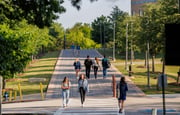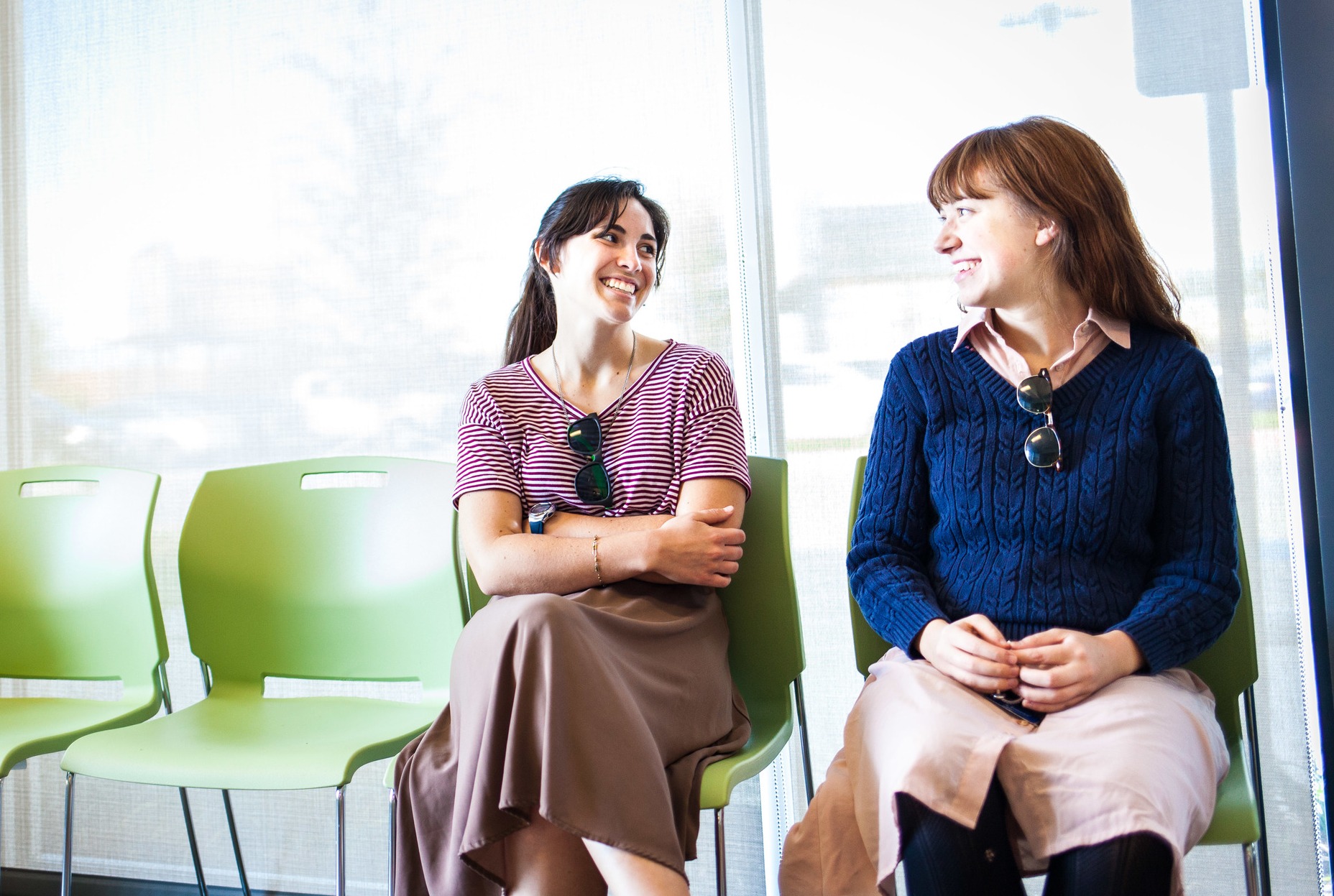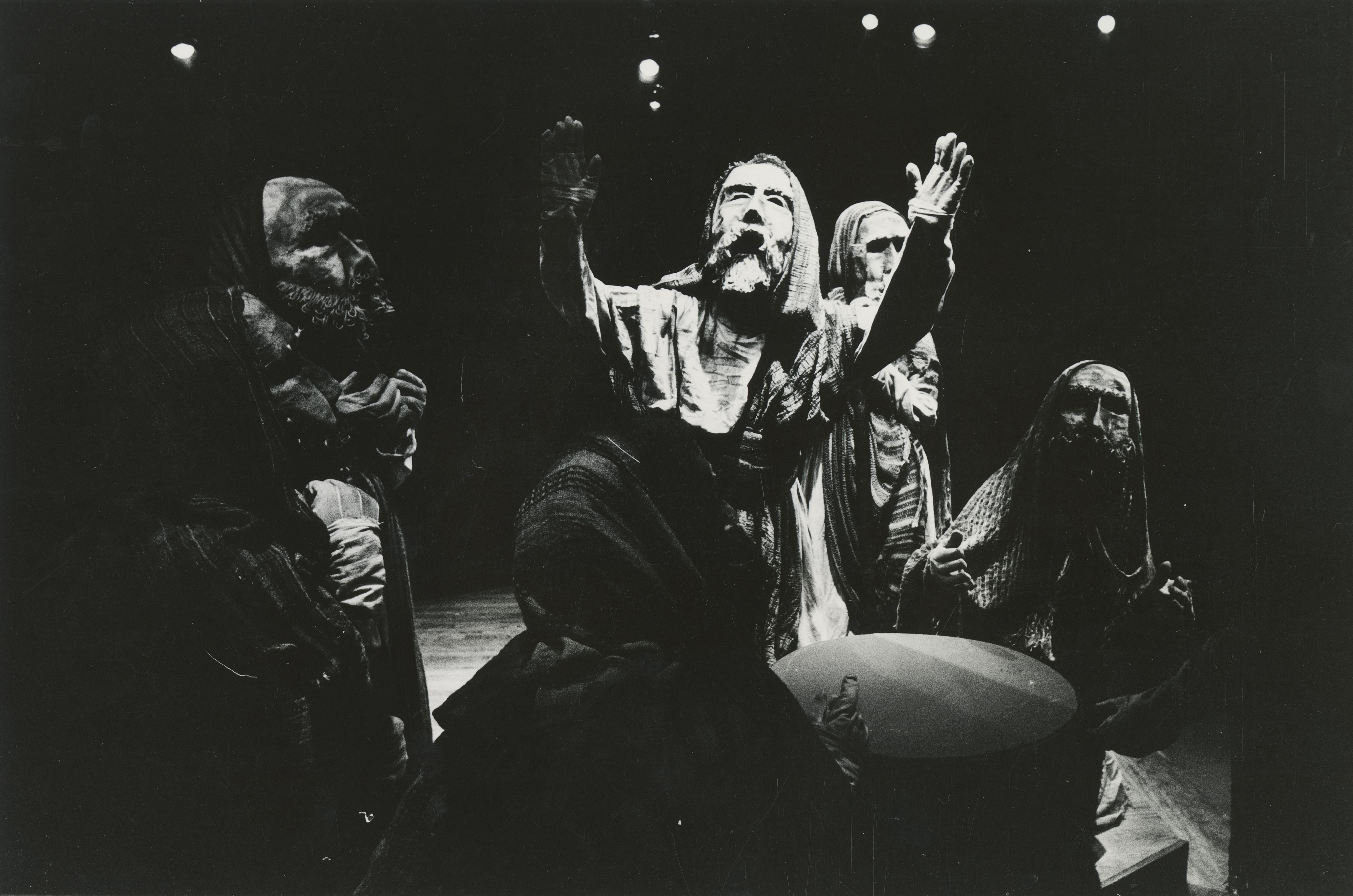A self-professed nerd, University of Dallas Counseling Center Director Johnathan Sumpter, MBA ’14, likes statistics. If you were to ask him for one, Sumpter would likely start with a particularly important number: the share of students at UD who seek counseling.
“In 2021-2022, we saw a third of the population. This past year, we saw about 31%,” Sumpter said.
“This average is a little higher than some other similarly sized universities. … In other words, compared to similarly sized universities, we are seeing more people — but we have lower amounts of crises per semester.”
Sumpter sees this as an inspiring fact. Students who seek counseling generally don’t drop out of UD; a significant share of the students who walked the stage in May struggled with emotional issues inhibiting their education and won.
“The stats can sound very scary, but I like to think of it as a signal for the ability of humans to be champions through resiliency,” Sumpter said.
“The Princeton Review says we have the number six university in the nation for happiest students, and we have higher mental health utilization than similar campuses. So how do those two things match? I think it’s because sometimes life is hard, and you need a supportive community around you. We have a community that is better poised to be able to respond.”
Students at UD keep their appointments more consistently than students from other schools, indicating a sense of trust between them and the counselors. According to Sumpter, the Counseling Center at UD has a 97% show rate.
“The national average, depending on the size of the school and other factors, is around 88% to 92% at best,” he said. “We have really good clinicians who serve a large percentage of the student population, and people show up to their appointments.”
Counseling at UD sees human identity as immutable, inextricably physical and carefully crafted by a loving creator.
But what makes counseling at UD stand out from other universities most is its clinical approach. Compared to other campuses, UD counselors are more equipped to address mental illnesses.
“A lot of universities will do more school counseling — which is more about basic problem-solving skills, crisis intervention — and then more triage to outside resources,” Sumpter said.
“If you have depression, it might be hard to be seen by the counseling center at another school because they may refer you out, depending on the level of severity. … If somebody is struggling beyond what is normally seen in an outpatient center, then we would refer out. But we go up a lot higher than some universities in the level of clinical care.”
This more focused approach begins with UD’s Catholic understanding of the human person, which doesn’t hold certain assumptions of the American Psychological Association and other authorities in the field. Counseling at UD sees human identity as immutable, inextricably physical and carefully crafted by a loving creator.
We have a Christian anthropological understanding of the human person, which, in our world, is about the respect and dignity of the human person.
"We also need to be very accepting of different walks of life and be able to provide everyone with good, quality care,” Sumpter says.
By looking at the full spectrum and guiding students to the various support networks on campus, Sumpter hopes to cultivate a community supportive of itself.
“Rather than sending somebody who has some distress to the Counseling Center and hoping that it works out, let us as a community rally around and support each other,” he said.
The Counseling Center is moving toward a stepped plan for mental health services to achieve this practically. To conserve and properly direct resources to students that need them most, UD counselors will recommend that students experiencing nonurgent problems take personal steps toward mental health, such as getting sunlight and better sleep, before moving to therapy and eventually medical treatment if needed.
Along with this plan, UD is exploring the use of self-monitoring tools such as the University of Texas Southwestern’s Evexia program. UD also benefits from the efforts of Trustee Jean White, BA ’86, and her husband Marty, BA ’86, who collaborated with UD President Jonathan J. Sanford, PhD, to establish the One Body, One Spirit Endowment last year.
“What’s important for us, similar to the Good Samaritan, is meeting people, recognizing the struggle, moving through the confusion and finding things that are stable, that are true,” Sumpter said.



